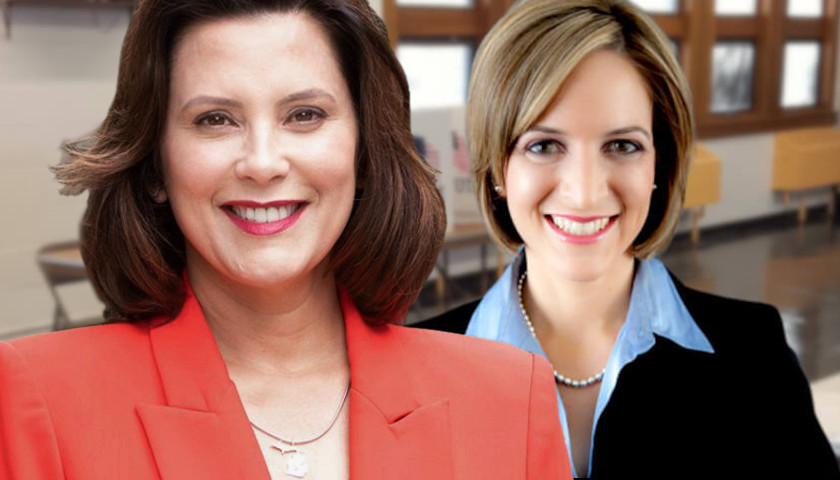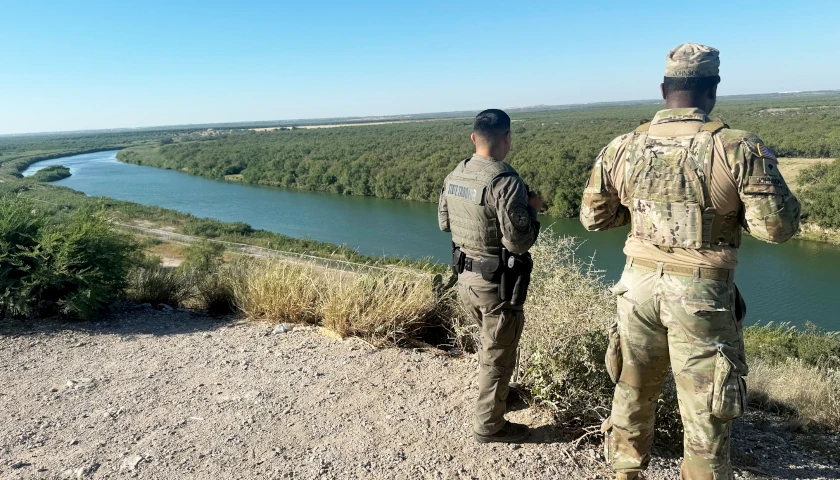A coalition filed two lawsuits in Michigan on Monday, a federal case against Gov. Gretchen Whitmer for allegedly silencing political speech, and a state suit against Michigan Secretary of State Jocelyn Benson for reportedly circumventing state law protecting the right of Michiganders to have their vote properly counted.
The lawsuits were announced on a new website launched by the coalition: Got Freedom? The website is available here.
More information on the lawsuits is available here.
The coalition says they want to “allow retail politicking leading into the general election and block Secretary Benson from sidestepping state law and suspending ballot integrity protections.”
They “point to Whitmer’s threat of jail time for those seeking to host political rallies and election irregularities in Wayne County during the August 4 primary as justification for the suits.”

Phill Kline, director of The Amistad Project of the Thomas More Society, said in a statement:
The two lawsuits filed today are a part of this project and Thomas More Special counsel Edward Greim, joined by local counsel Ian Northon of Grand Rapids and assisted by Thomas More Associate Counsel Tim Griffin will handle our Michigan litigation.
These lawsuits challenge the actions of Governor Whitmer and Secretary Benson in their use of what is called the emergency police powers of the state. These extraordinary powers are intended to be used when the other branches of government are unable to function and are either incapacitated due to violence or war or are fundamentally incapable of responding to a fast-changing unknown but temporary threat.
The lawsuit against Benson is connected to alarms raised by advocates that she allegedly is undermining the security of signature verifications of absentee ballots, which The Michigan Star reported on Sunday.
The Election Integrity Fund (EIF) and its vice president, Glen Sitek, filed the suit in the State of Michigan Court of Claims against Benson.
Sitek said in a statement:
Michigan election laws work to achieve these objectives by allowing absentee voting and prohibiting misleading voters in completing their ballots, prohibiting coercion and intimidation to force a voter to vote a certain way, only allowing those eligible to vote to cast a vote and providing for the proper counting of legitimate ballots.
By manipulating the fear of Michiganders regarding COVID, the Secretary of State has side-stepped key Michigan laws protecting ballot integrity, misled the public and failed to take reasonable and responsible action to assist local clerks in preparing for the great increase in the use of absentee ballots.
These actions resulted in us teaming up with The Amistad Project of the Thomas More Society to bring this suit against Secretary Benson.
It is unfortunate that we must bring suit against one whose duty is to uphold Michigan election laws for failure to follow those very laws but it is vitally important Michiganders have the opportunity vote in a fair and honest election in which each and every single vote will be properly counted.
The lawsuit says, in part:
This lawsuit challenges the action of Michigan Secretary of State Jocelyn Benson in allowing individuals to apply for absentee ballots online. The online system fails to comply with Michigan law and invites fraud. The problem is this: every individual who gains access to the Secretary’s online application system can apply for a ballot to be mailed without submitting the actual signature of a voter. Without a real signature on the application, election officials have no signature to check against the voter signature that is already on file—a crucial anti-fraud protection. Using the Secretary’s new online system, thousands of ballots will be mailed to addresses, but without the statutorily required signature comparison to ensure that the addressee voter really requested the ballot, and really requested it to be sent to that address.
Additionally, the lack of an application signature also undermines the process of authenticating ballots once they are returned via mail. The Secretary’s own “Election Officials’ Manual” requires the officials processing these ballots to compare the signature on the ballot to the signature on the application to “determine the legality of the ballot”. This comparison cannot be accomplished, of course, if the application lacks an accompanying signature. Hence, the officials cannot determine the legality of the ballots requested using the Secretary’s online system.
The second lawsuit was filed in U.S. District Court for the Western District of Michigan by the EIF and One Nation Michigan against Whitmer.
The plaintiffs ask the court to declare Whitmer’s “executive orders cannot apply as a blanket criminal sanction against ‘Responsible Politicking’: First Amendment assembly of more than 10 indoors, and more than 100 outdoors, in which participants use social distancing and masks.”
One Nation president and former Michigan civil rights Commissioner Dr. Linda Lee Tarver said her organization “supports reasonable and rationale dialogue on race that acknowledges our nation’s failures while respecting its goodness. However, we were told we cannot rally and continue to be confronted with ever-changing, confusing and ambiguous orders from the Governor.”
Kline added, “Governor Whitmer and Secretary Benson have encouraged Michiganders to vote by absentee ballot, rendering retail politicking in the months leading up to the election of even greater significance. Unlike other years in which most ballots would be cast on election day, hundreds of thousands or millions of votes will be cast in the weeks leading up to November 3. As the Michigan electorate complies with the Governor’s insistence that they cast absentee ballots leading up to election day, her executive orders prevent those same voters from gathering to speak about the candidates and issues on which they are voting.”
Catherine Engelbrecht, founder and president of True the Vote, a partner in The Amistad Project, said, “Governor Whitmer and Secretary Benson’s attempt to drastically change election processes at the eleventh hour would allow anyone with Internet access to vote by mail, with no way to verify who requested the ballot or who actually cast the vote, as long as they claim to be a self-quarantining voter.”
– – –
Jason M. Reynolds has more than 20 years’ experience as a journalist at outlets of all sizes.





